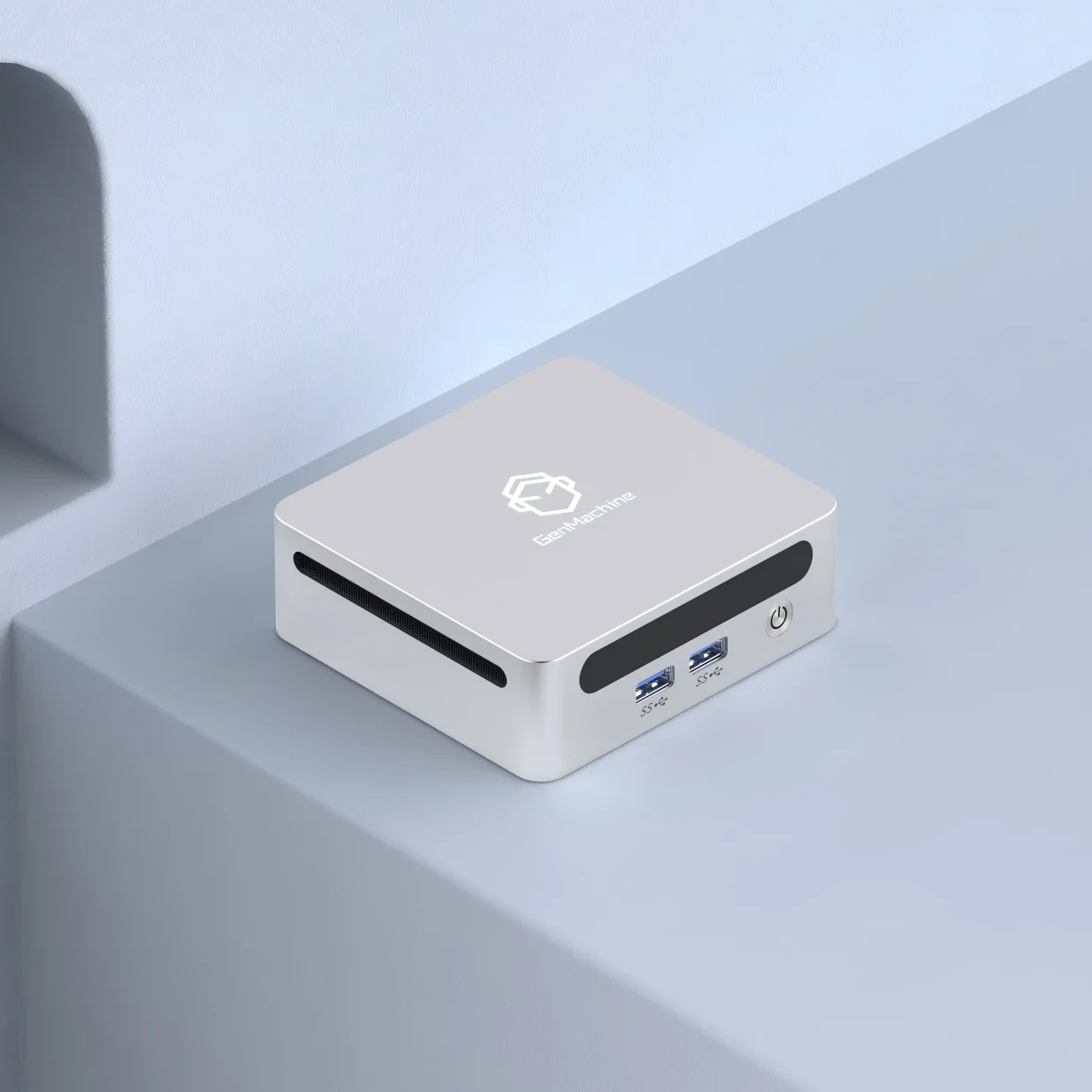In 2025, global energy demand is hitting record highs—driven not just by industry and transportation, but by billions of connected devices running 24/7. With heatwaves pushing power grids to the brink from California to southern Europe, and electricity prices spiking across Asia, the call for energy efficiency in tech has become impossible to ignore.
As climate concerns and operating costs escalate, both consumers and businesses are rethinking how much power their everyday devices consume. Enter the Mini PC—small in size, big in impact.
What began as a compact niche device has evolved. By 2025, Mini PCs are not only mainstream—they’ve become a quiet hero in the global fight against energy waste.

Smaller Form, Smarter Energy Use
Mini PCs consume significantly less power than traditional desktop computers. While a standard desktop might draw 250 watts or more during operation, many compact Mini PCs operate comfortably at 15–65 watts. That’s a fraction of the energy, with enough performance for everyday tasks, remote work, light gaming, or even media editing.
What makes these tiny PCs so efficient? It comes down to components and design. With fewer moving parts, solid-state drives, passive cooling systems, and compact motherboards, Mini PCs minimize heat output and power draw. This means less strain on the power grid—and less heat in your room.
Why 2025 Is the Tipping Point
Several trends are converging to make Mini PCs more appealing in 2025:
- Remote Work Is the New Normal: Companies are optimizing energy use at home and in satellite offices. Mini PCs are perfect for this lean setup.
- Green Tech Mandates: More regions and industries are adopting energy regulations and sustainability reporting. Swapping out old desktops for Mini PCs helps meet those standards.
- Better Performance per Watt: Thanks to new processors from AMD, Intel, and ARM, today’s Mini PCs can handle complex workflows while sipping power.
Even in schools, libraries, and call centers, replacing hundreds of towers with Mini PCs can cut electricity costs dramatically. Multiply that across industries, and the potential impact is staggering.

Eco-Friendly Beyond Power Usage
The environmental benefits of Mini PCs don’t stop at electricity:
- Less Material Waste: Smaller devices mean fewer raw materials used in production.
- Longer Lifespan: Many Mini PCs are built with modular parts—allowing users to upgrade RAM, storage, or Wi-Fi modules instead of buying a new machine.
- Lower E-Waste: Fewer components break down, and repair is easier. Some brands also use recycled plastics in the chassis design.
From manufacturing to disposal, the total ecological footprint of a Mini desktop PC is lighter than its full-sized counterpart.
Mini PCs and the Edge Computing Shift
Another reason Mini PCs are gaining attention in 2025 is their growing role in edge computing—processing data locally instead of sending it all to distant cloud servers. This reduces bandwidth usage and energy needs across networks.
Whether deployed as smart home hubs, AI-enabled surveillance systems, or digital signage controllers, Mini PCs are making computing greener, faster, and more efficient at the edge.

Should You Switch?
If you’re running older desktops or laptops that stay plugged in for hours a day, it’s worth calculating the energy cost. Replacing those systems with Mini PCs might pay off not just in electricity savings, but in reduced cooling costs and maintenance.
Businesses can take it a step further by branding the transition as part of their ESG (Environmental, Social, Governance) goals—something increasingly important to customers, investors, and employees.
Conclusion: Think Small, Win Big
In 2025, green computing isn’t just a buzzword—it’s a necessity. Mini PCs may not grab headlines like electric cars or solar panels, but their role in the fight against energy waste is real, growing, and deeply impactful.
So whether you’re building a home office, upgrading a classroom, or optimizing IT infrastructure, consider the smallest machine with the biggest benefits.
FAQ
How much energy can a Mini PC save compared to a traditional desktop?
On average, a Mini PC uses 50–70% less energy than a full-size desktop, especially under typical workloads.
Can Mini PCs handle everyday tasks like video calls, spreadsheets, and streaming?
Absolutely. Most Mini PCs in 2025 can easily support office work, web browsing, video streaming, and light content creation.
Are Mini PCs environmentally friendly to manufacture?
Yes. Many manufacturers now use recyclable materials and modular designs to reduce production waste and extend product life.





